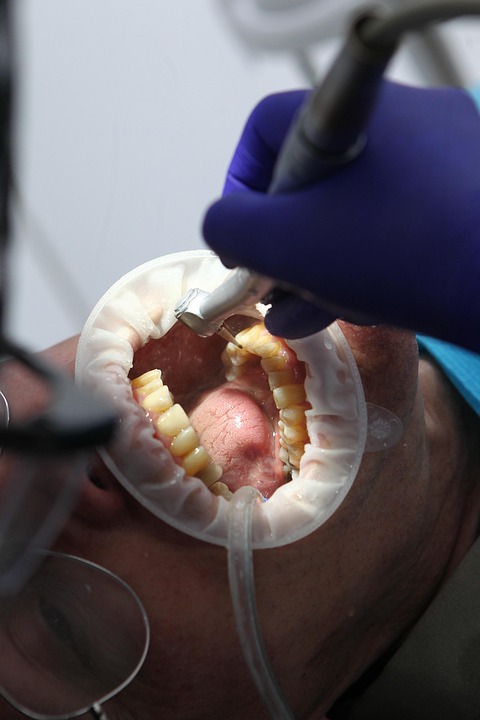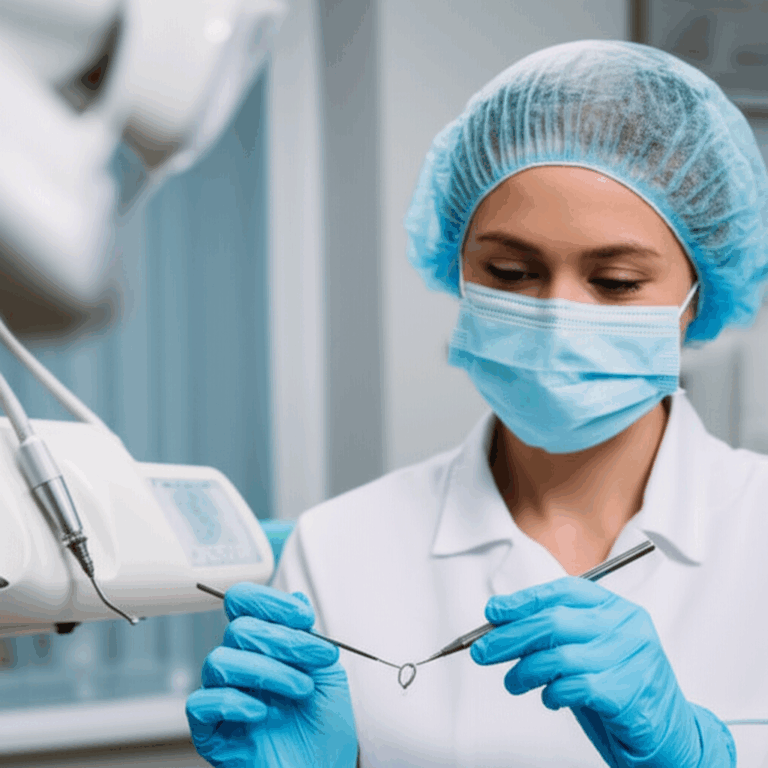
Can Dental Implants Cause Eye Problems
Worried that your new dental implants might somehow mess with your vision? You’re not alone. For many patients, especially those facing surgery for the first time, the simple idea that something in your mouth could affect your eyes sounds scary, like something out of a movie. In this article, I’ll break down the facts, bust some strange myths, and share what I’ve learned as both a curious patient and someone who’s done a lot of research. If you want to keep both your eyes and your smile safe, stay with me.
Outline
- What’s the Real Worry: Can Dental Implants Affect Your Eyes?
- How Close Are Teeth to Your Eyes?
- What Happens During a Dental Implant?
- Can Infection in Dental Implants Spread to the Eyes?
- Have There Been Any Real Cases of Eye Problems After Dental Implants?
- Does Material From Dental Labs Make a Difference?
- What Are the Symptoms of Eye Trouble to Watch Out For?
- When Should You Call Your Dentist or Doctor?
- How Can You Lower Your Risks?
- What Else Should You Know About dental care and Implants?
- Does the Quality of the Dental Lab Matter?
The Bottom Line: Should You Worry?
What’s the Real Worry: Can Dental Implants Affect Your Eyes?
Let’s be real. Anytime someone talks about surgery close to your face, your mind starts to worry. You may ask—can my dental implant actually hurt my eyes? This worry isn’t silly, especially if you’ve heard stories online or from friends that dental surgery could cause blurry vision or even blindness.
Here’s the thing: when you don’t know the facts, it’s easy to fear the worst. I’ll look closely at whether dental implants—those metal posts put in your jaw to hold fake teeth—can really cause any eye problems. If you’ve ever wondered about the link between your mouth and eyes, I’ve got you covered.
How Close Are Teeth to Your Eyes?
Let’s look at your face like a building project. Your top teeth are pretty close to your eyes, especially the back ones on the upper jaw. There’s a space called the maxillary sinus between the roots of your teeth and your eye sockets. Bone separates them, but for some people, it’s really thin—sometimes almost like paper.
Still, your dentist isn’t drilling into your eyeball! Thanks to new technology and good planning, surgery is safe. Even so, because things are close together, swelling or infection can sometimes move in strange ways. This is why it helps to know how your head is built and see why, even though it almost never happens, dental and eye problems could possibly mix.
What Happens During a Dental Implant?
Dental implants sound fancy, and they sort of are. Your dentist, sometimes working with a 3d dental lab, drills a small hole in your jawbone and puts in a metal post (usually titanium). Over a few months, your bone grows around this post, holding it strong—like a screw in wood. For the part you’ll see in your smile, dentists might use material from a zirconia lab or emax dental lab for a natural look.
Most people just feel a bit sore and swollen after. Big problems are rare, and new dental tools make things safer than ever. Serious trouble? That almost never happens, but smart patients like you always want to know what can go wrong. Keep asking questions!
Can Infection in Dental Implants Spread to the Eyes?
This is the part that gets a little scary. Any surgery, no matter how small, has a slight risk of infection. If germs get into your jaw during your implant, you could get a bone infection (“osteomyelitis”) or a sinus infection. In super rare cases, that infection can travel to the area around your eyes. When an infection spreads to the eye area, doctors call it “orbital cellulitis” and it’s not something you want.
I’ve read reports and heard dentists say that out of the many implants done every year, only a tiny number ever end up with problems near the eyes. It usually takes a “perfect storm” of sinus trouble, missing follow-up care, or other health problems. If you heal well and let your dentist know right away if something feels wrong, your chances of having serious eye problems are extremely small.
Have There Been Any Real Cases of Eye Problems After Dental Implants?
You’re probably asking—has this ever really happened? The answer: yes, but almost never. Most of the time, it’s not really eye problems, but a sinus infection instead. Once in a while, medical reports show a person having swelling, red eyes, or double vision after ignoring infection signs after a dental implant. The trouble can move from the mouth, through the sinus, and around the eye.
For instance, there have been a few cases where people got swelling or double vision after getting a fever and not seeing a doctor soon enough. But with antibiotics and the right care, almost everyone gets better. There’s no real proof that a properly placed implant by a good dentist or expert china dental lab can cause blindness. The chances are so tiny they’re not worth losing sleep over—but it never hurts to stay aware.
Does Material From Dental Labs Make a Difference?
You might not think about what your new tooth is made from, but it does matter. The best dental labs—including top china dental lab, zirconia lab, and emax dental lab—make crowns that fit just right and stop germs from getting in. Badly made implants might have spaces where germs can hide. That’s one reason dentists use careful partners, sometimes even 3D dental lab tricks, to get every tooth to fit perfectly.
The bigger problem is infection, not what the crown is made of. But sloppy work can add to your risk, even if it’s just a small amount. Always ask your dentist where your crowns come from and why they trust that lab. Good dental work means all the parts fit well together.
What Are the Symptoms of Eye Trouble to Watch Out For?
Let’s make it simple. After dental surgery, you might feel puffy and a bit bruised. That’s normal. But there are signs you shouldn’t ignore:
- sudden redness or swelling around the eye,
- eye pain when you move your eyes,
- double vision or blurry spots,
- fever that doesn’t go away,
- stuffed-up nose or yellow stuff coming from your nose for days.
Most people just get a bit sore around the cheeks for a few days. But if your eye starts to look weird or you can’t see right, don’t wait—call your dentist or doctor as soon as you can. It’s way better to ask and find out it’s nothing than to miss signs of a real problem.
When Should You Call Your Dentist or Doctor?
This is where a lot of people go wrong. It’s easy to put off pain after surgery. But if something doesn’t feel right—especially with your eyes or swelling—pick up the phone.
My rule is easy: if pain gets worse, you see double, or your eye gets red or puffy, don’t wait until your next appointment. Dentists know what to look for. If your symptoms happen at night or on a weekend, call the emergency number or, if things are really bad, go to urgent care. Quick action is the best way to stop big problems before they start.
How Can You Lower Your Risks?
No one wants extra problems. The good news is, you have lots of control. Pick a dentist with a solid history and plenty of experience. Ask if they use up-to-date tech, like a 3D dental lab, to plan out your implant. Talk about your health history, especially anything about your sinuses or if you have a weak immune system.
Follow every aftercare rule: rinse as directed, take any medicine you get, don’t smoke, and don’t touch the area. Go to all your follow-up visits. The best way to keep your eyes and mouth healthy is to take care of both and listen to your dental team’s advice.
What Else Should You Know About Dental Care and Implants?
Dental implants are very safe and can last you a long, long time. Sometimes, problems don’t come from the implant, but from poor dental care before or after. Skipping cleanings, letting your gums get sick, and not brushing make infections more likely.
Think of implants as a team effort between you and your dentist. If you don’t brush, floss, and eat healthy, not even the best implant will save you from trouble. On the flip side, if you really care for your teeth, you might just find that your whole health gets better too.
Does the Quality of the Dental Lab Matter?
Yes, it does. Cheap, rushed work from a bad lab can make your risk go up. When your dentist chooses a trusted china dental lab or works with a well-known zirconia lab or emax dental lab, you have a much better shot at a perfect fit and strong, safe teeth. Getting things right is important—both for comfort and for stopping germs.
Plus, the best labs use stuff that’s less likely to let bacteria stick around. Ask your dentist where your implant parts are from and why they picked that lab. If you have any allergies or problems with metals, let your dentist know ahead of time.
The Bottom Line: Should You Worry?
Here’s the simple truth. The chance of a dental implant messing up your eyes is about the same as slipping on two banana peels in one day. With today’s dental care, if you trust your dentist and listen to instructions, eye problems almost never happen.
But here’s what to remember—The problem: We all get nervous about surgery near our eyes. The worry: That fear can get worse if you read scary stories or don’t know what’s true. The answer: Pick a great dentist, care for your mouth, and ask questions. You’ll feel so much better and know you did everything you could to stay safe.
Bullet Point Summary: Key Takeaways
- Dental implants are safe and last for years as a fix for missing teeth.
- Eye problems after implants are very rare, but infection can sometimes spread from your mouth to your eye if you ignore it.
- Pick skilled dentists and top dental labs (like a china dental lab, zirconia lab, or emax dental lab) to keep risks low.
- Know the warning signs: pain near your eye, double vision, or big swelling—call your doctor if these happen.
- Taking good care of your mouth before and after surgery is super important for your health.
- Always follow the care steps, take your medicine, and don’t miss checkups.
- Your eyes and teeth are close to each other, but with smart planning, they won’t cause problems for each other.
- If you’re not sure, just ask your dentist. There’s no such thing as a silly question when your health is what matters.
Keep smiling and keep an eye on your health—because peace of mind and feeling good go together!








